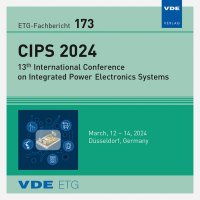DC- and AC-Side EMI Filter Design for an Interleaved Three Phase/Level ANPC High-Power GaN PV Inverter Using Coupled Inductors
Conference: CIPS 2024 - 13th International Conference on Integrated Power Electronics Systems
03/12/2024 - 03/14/2024 at Düsseldorf, Germany
Proceedings: ETG-Fb. 173: CIPS 2024
Pages: 10Language: englishTyp: PDF
Authors:
Wang, Fan; Sprunck, Sebastian (Fraunhofer Institute for Energy Economics and Energy System Technology IEE, Germany)
Wagner, Valentin; Dick, Christian (TH Cologne University of Applied Sciences, Germany)
Jung, Marco (Fraunhofer Institute for Energy Economics and Energy System Technology IEE, Germany & Bonn-Rhein-Sieg University of Applied Sciences, Germany)
Abstract:
Gallium Nitride (GaN) based power transistors support faster switching and higher operating frequencies, achieving higher cutoff frequencies and lower ripple currents, which helps to reduce the size of inductors, capacitors, and transformers [1]. However, high switching frequencies push the noise spectrum into a higher frequency range, which leads to an increase in the Electromagnetic Interference (EMI) filter parameters and thus their size and weight. At the same time, it is possible to optimize both the steady-state and dynamic performance of converters by using inverse-coupled inductors instead of conventional discrete inductors. This paper focuses on the AC and DC side common mode (CM) and differential mode (DM) EMI filter networks for a 150 kVA, GaN based interleaved three phase/level ANPC PV inverter with a switching frequency of 140 kHz. A sine-wave output filter utilizing inverse-coupled inductors is proposed in this paper, providing both CM and DM attenuation and reducing inductor size. The simulation method of the spectrum analysis for coupled inductors is also introduced to analyze the DM and CM behavior of coupled inductors under interleaved operation. The EMI interaction between the AC and DC sides is investigated based on the CM and DM equivalent circuits. Simulation results show that the designed EMI filters can suppress both AC and DC EMI noise to meet the standard.


